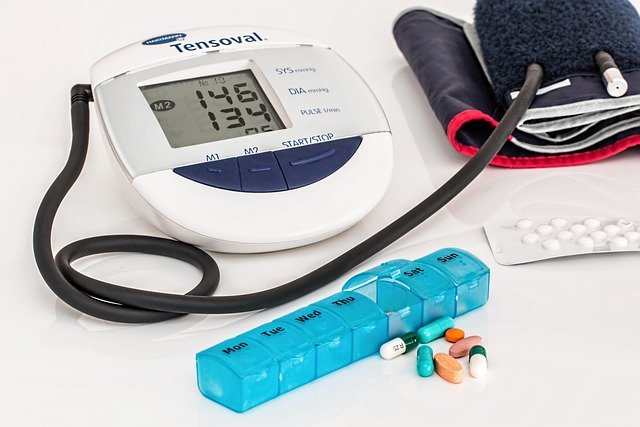Everyday Medications That Might Be Putting Your Kidneys at Risk
Medications can be essential for managing various health conditions, but certain drugs can have negative effects on kidney function. Over time, some medications may cause kidney damage, leading to conditions like chronic kidney disease (CKD). Recognizing the signs and symptoms of kidney problems early can help prevent further damage and improve overall health.

Many people don’t realize that some of the medications they rely on daily could be harming their kidneys. The kidneys are responsible for filtering toxins, regulating blood pressure, and maintaining fluid balance, but certain drugs can interfere with these critical functions. Whether prescribed by a doctor or purchased over the counter, some medications have the potential to cause acute kidney injury or contribute to chronic kidney disease over time. Awareness of these risks, combined with proactive monitoring and lifestyle adjustments, can help safeguard your kidney health for the long term.
What Are Medications That Can Cause Kidney Disease?
Several categories of medications are known to pose risks to kidney function. Nonsteroidal anti-inflammatory drugs, commonly known as NSAIDs, are among the most frequently used over-the-counter pain relievers. Medications like ibuprofen, naproxen, and aspirin can reduce blood flow to the kidneys when used regularly or in high doses, potentially leading to kidney damage. People with existing kidney issues or those who use these drugs chronically are at higher risk.
Certain antibiotics, particularly aminoglycosides and vancomycin, can be toxic to the kidneys, especially when used in high doses or for extended periods. Proton pump inhibitors, which are commonly prescribed for acid reflux and heartburn, have been linked to increased risk of chronic kidney disease with long-term use. Additionally, some blood pressure medications, diuretics, and chemotherapy drugs can stress the kidneys. It’s important to discuss any concerns with your healthcare provider, especially if you have risk factors like diabetes, high blood pressure, or a family history of kidney disease.
How to Recognize the Signs and Symptoms of Kidney Disease
Kidney disease often develops silently, with few noticeable symptoms in the early stages. However, as kidney function declines, certain warning signs may emerge. Fatigue and weakness are common, as the kidneys struggle to remove waste products from the blood. You might also notice changes in urination patterns, such as increased frequency, especially at night, or decreased urine output. The urine itself may appear foamy, indicating excess protein, or darker in color.
Swelling in the legs, ankles, feet, or face can occur when the kidneys fail to remove excess fluid from the body. Some people experience persistent itching, nausea, loss of appetite, or difficulty concentrating. High blood pressure that becomes difficult to control can also signal kidney problems. If you’re taking medications known to affect kidney function and notice any of these symptoms, it’s crucial to seek medical evaluation promptly. Early detection can prevent progression to more serious kidney damage.
The Importance of Early Detection in Kidney Health
Early detection of kidney disease is vital because kidney damage is often irreversible once it reaches advanced stages. Regular screening through blood and urine tests can identify problems before symptoms appear. A simple blood test measuring creatinine levels helps determine your glomerular filtration rate, which indicates how well your kidneys are filtering waste. A urine test can detect the presence of protein or blood, both signs of kidney damage.
For individuals taking medications that pose kidney risks, healthcare providers may recommend more frequent monitoring. This is especially important for people with diabetes, high blood pressure, or a family history of kidney disease. Catching kidney problems early allows for interventions such as medication adjustments, dietary changes, or treatments that can slow disease progression. In some cases, simply switching to a different medication or reducing dosage can protect kidney function. The key is maintaining open communication with your healthcare team and adhering to recommended screening schedules.
Related Programs for Kidney Health Monitoring
Various programs and resources are available to help individuals monitor and maintain kidney health. Many healthcare systems offer chronic disease management programs that include regular kidney function testing for at-risk patients. The National Kidney Foundation provides educational resources, screening programs, and support groups for people living with kidney disease or at risk of developing it.
Some insurance plans and healthcare providers offer kidney care programs that provide personalized monitoring, dietary counseling, and medication management. Digital health platforms and apps can help track medications, remind you of screening appointments, and monitor symptoms. Community health centers often provide low-cost or free screening services for uninsured or underinsured individuals. Additionally, pharmaceutical companies sometimes offer patient assistance programs that include monitoring services for people taking medications known to affect kidney function. Exploring these resources can provide valuable support in protecting your kidney health.
Lifestyle Changes to Protect Kidney Health
Beyond medication management, several lifestyle modifications can significantly reduce your risk of kidney disease. Staying well-hydrated helps your kidneys flush out toxins and prevents kidney stone formation. Aim for adequate water intake throughout the day, though the exact amount varies based on individual needs and activity levels. Maintaining a healthy diet low in sodium, processed foods, and excessive protein can ease the burden on your kidneys.
Regular physical activity helps control blood pressure and blood sugar levels, both critical factors in kidney health. If you smoke, quitting is one of the most important steps you can take, as smoking damages blood vessels and reduces blood flow to the kidneys. Limiting alcohol consumption also protects kidney function. When taking over-the-counter medications, always follow dosage instructions and avoid using multiple products containing the same active ingredients. Before starting any new medication or supplement, consult your healthcare provider, especially if you have existing kidney concerns or risk factors.
Protecting Your Kidneys While Managing Medication Needs
Balancing the need for medication with kidney protection requires thoughtful collaboration with your healthcare team. If you require pain management, discuss alternatives to NSAIDs, such as acetaminophen in appropriate doses, or explore non-pharmacological options like physical therapy, heat therapy, or acupuncture. For chronic conditions requiring long-term medication use, regular kidney function monitoring becomes essential.
Your doctor may adjust medication dosages based on your kidney function or switch you to kidney-friendly alternatives when available. Never stop taking prescribed medications without medical guidance, as this could worsen your underlying condition. Instead, have an honest conversation about your concerns and work together to find the safest approach. Keeping a comprehensive list of all medications, supplements, and over-the-counter products you use helps your healthcare provider identify potential risks and interactions. Remember that protecting your kidneys is a partnership between you and your medical team, requiring ongoing attention and proactive management.
This article is for informational purposes only and should not be considered medical advice. Please consult a qualified healthcare professional for personalized guidance and treatment.



